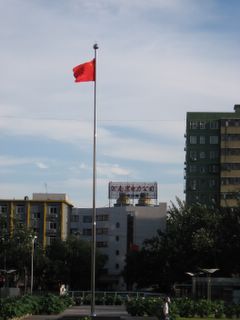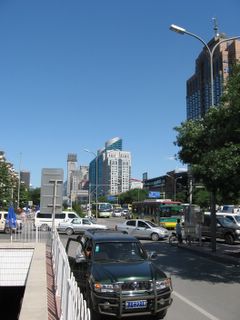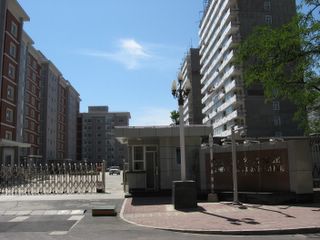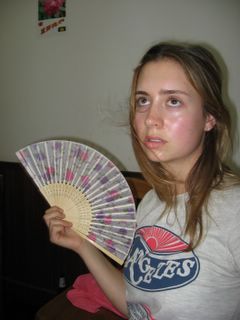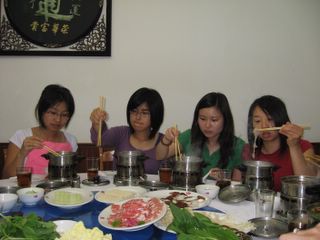
All right, time to explain hotpot now that I have a visual aide. Each person gets a personal pot of either Mongolian (no spice) broth, or the more popular Chongqing-"MaLa" version, which is so spicy it will make your lips tremble and go numb after a few bites. At Minbao, as well as some other joints, you can request "half-spicy" which is flavorful without the painful aftereffects a pure Chongqing broth often brings. Dishes of vegetables, meats and other goodies are ordered communally and added by the individual to their own hotpot, to be cooked exactly as desired. Hotpot mushrooms are absolutely to die for. I once (not this time) ate an entire plate of them almost entirely by myself.
Hotpot is originally Mongolian, and as a result variants of it can be found throughout East Asia. The Chongqing version started as a way to sell tripe on the banks of the Yangste River (much as the burrito is supposed to have begun as a way to sell cheap meat). So the story goes, people quickly realized that lamb (the traditional Mongolian ingredient), beef, certain types of noodles, lotus root, and every kind of vegetable known to man actually tastes great cooked fresh in the stuff. And in the Chinese food culture, where "fresh" is everything, it's a great way to get your veggies (or, octopus, cuttlefish, etc.)
EAP China! Robert Klein.



